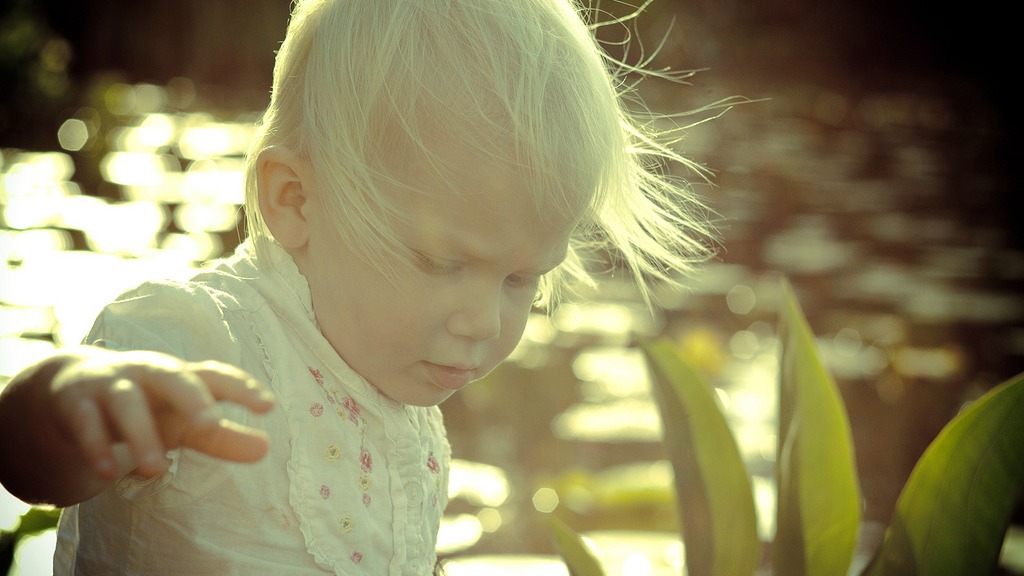The first clear memory I have of my father exemplifies every moment after. The lake lapped softly against the posts of weathered, bone-dry dock upon which I stood. I curled my toes into the splintery wood, blinked back the intense, hot Texas sun and leapt blind, for the first time, into waters well over my head. I didn't have to see my father to know he'd be there, in the water, to catch me. All my life, my father's presence has been certain as the sun; I've never wondered if he'd be there for me when I needed him.
But one out of three children in the United States—more than 15 million—live without the certainty of their father's presence. Among industrialized countries, the United States is a world leader of fatherless homes, surpassed only by Belgium, Estonia, and the United Kingdom, with single mothers heading up a quarter of all U.S. households. Since the 1960s, the number of single-parent homes have more than tripled, and the bulk of those households (76%) are fatherless homes. Tragically, this number doesn't include circumstances in which the father technically lives with the family, but is emotionally or physically absent.
Whether through abandonment, incarceration, death, or workaholism, fatherlessness is a root of many of our contemporary social ills. According to a widely cited report from the U.S. Department of Justice, children from fatherless home are 5 times more likely to commit suicide, 32 times more likely to run away, 20 times more likely to have behavioral disorders, 14 times more likely to commit rape, 9 times more likely to drop out of high school, 10 times more likely to abuse chemical substances, 9 times more likely to end up in a state-operated institution, and 20 times more likely to end up in prison than children from homes with a mother and father present.
Since fathers (though not mothers) have a mediating effect on impulse control and risk-taking behaviors of adolescent girls, fatherless females are 53 percent more likely to marry as teenagers, 711 percent more likely to have children as teenagers, 164 percent more likely to have a pre-marital birth, and 92 percent more likely to get divorced themselves.
How did we go, in a short span of 50 years, from "father knows best" to "who knows where father is"?
In a culture such as ours, in which moral virtue is sacrificed at the altar of self-indulgence, there is certainly something to be said about a pervasive lack of moral fiber. Many men lack the character to commit, to follow through self-sacrificially, because they've never been told it's important or it's never been modeled to them. Fatherlessness is a component of the alarming breakdown of the family; roughly 40-50 percent of marriages end in divorce, and most divorced fathers (83%) only receive limited visitation of 5.5 days a month.
But what troubles me most of all is the way we have and haven't talked about men and fathers. Lately we've taken to calling men the weaker sex, naming them failures in the new economy. It wasn't a great while ago that Hanna Rosin's "End of Men" article for The Atlantic stoked a national conversation about a great gender role reversal in which women surpass men in education, work, and households.
For decades, we've told men they're not needed. Back in the 1980s, the sitcom Murphy Brown heralded a new age in which women were capable of breadwinning and childrearing without the help of a man. Today, geneticists and biologists tell us that men are not "relevant" to either reproduction or parenting. And just as in previous decades we neglected to study the impact of women leaders in the workplace, we neglected to study the impact of fathers on children.
When psychologist Vicki Phares from the University of South Florida reviewed 514 studies of child and adolescent psychology from leading psychological journals, nearly half excluded the role of a father.
As a mother and, incidentally, a person from a motherless home, I have a deep awareness of how important mothers are in the lives of their children. And yet, in my conversations with hundreds of Christian women leaders from around the globe, virtually all of them named their father as one of the most important persons in their development. Some mentioned their "parents" in general, but nary a one specifically mentioned their mother.
My life's work for the last decade has centered on promoting the leadership development of women, and this is not accomplished through the denigration of men and fathers. This is accomplished by celebrating and honoring, equally, the value of both men and women in all spheres of human life—in work, ministry, home, and parenting. Those without fathers may find these words painful, but until we face the problem of fatherlessness, until we acknowledge the importance of fathers, children will continue to suffer and we will continue to be plagued with social problems of all sorts. We can't offer a remedy for that which we have not diagnosed.
My father was not a perfect man. Today, he'd say he wished he'd spent more time with us kids when we were young. He'd tell you he should have taken us to church and been more generous with praise. But for all he thinks he got wrong, he got one thing right: he stayed. He stayed when it would have been far easier to go. And that, for me, has made all the difference.









